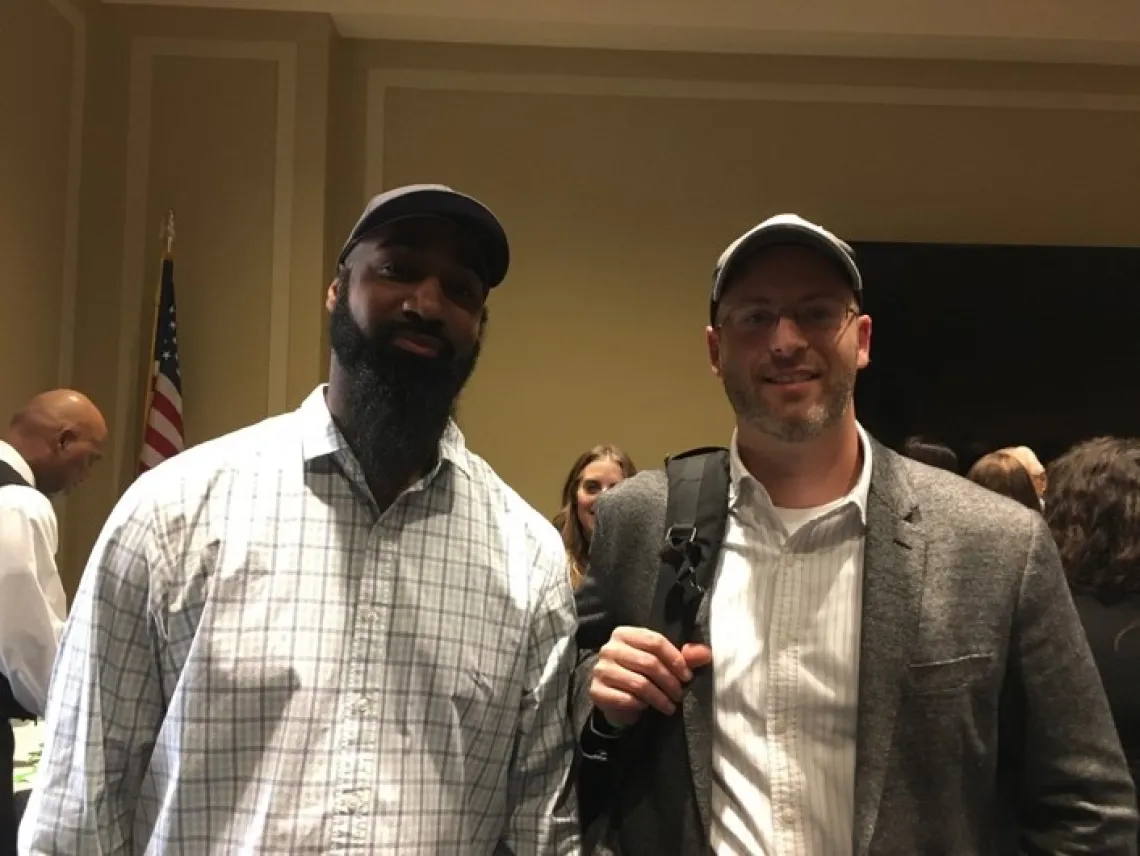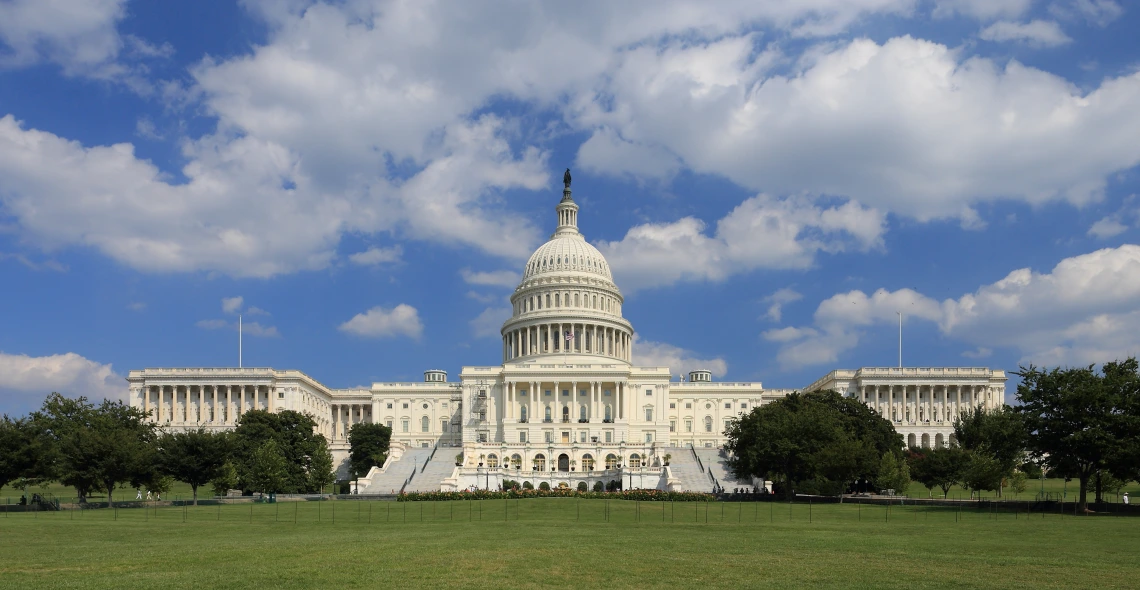The CACTI Blog: Sonoran UCEDD Represents AZ at National Brain Injury Awareness Day

By Austin Duncan, Sonoran Center Community Advisory Council Member
Like many disabled people—especially young disabled people—I have frequently felt isolated and ignored since becoming disabled by a severe Traumatic Brain Injury (TBI) 17 years ago. Almost no one understands what TBI is, much less what it can mean for survivors—and this includes my professors, colleagues, and even friends here at UArizona. The Sonoran UCEDD has been a rare exception, and I’ve worked with them as both a trainee and now a student worker for most of my time in graduate school – nearly seven years!
So, it was with great anticipation that I accepted when Sonoran UCEDD Training Director Jacy Farkas asked me to attend the National Brain Injury Awareness Day in Washington D.C. on March 4 as part of their collaboration with the Arizona Governor’s Council on Spinal and Head Injuries(link is external) on person-centered practices.
My experience did not disappoint!
I was lucky to participate in such an event when I did, given how we were all asked to begin “social distancing” soon after I returned to Arizona. In going to two all-day sessions on “the Hill” and talking to policymakers, professionals, and survivors there, I found gathered in one place hundreds of people from around the entire country that understood the effects of TBIs. More importantly, given TBI’s highly diversified and specific-to-the-individual nature, the people I met were willing to listen when I talked about my own disability, and the accommodations and understanding I needed to function optimally with it.
Thanks to the Sonoran UCEDD, I was able to stay at a very nice apartment sized AirBnB that was only a few blocks away from the U.S. Capitol building. It was near where all the action took place and the trendy Eastern Market shopping area, with its fantastic and (relatively) low cost food. So my time spent “working” for the Sonoran UCEDD in D.C. ended up being a wonderful experience as well as a great opportunity for professional development.
My first day in D.C., April 3, I got up early and headed out to the Hubert Humphreys building, where the U.S. Department of Health and Human Services (HHS) is housed and the National “TBI Stakeholder Day” was held.
The day’s events consisted of an address from HHS Assistant Secretary and Director of the Administration for Community Living (ACL)’s Lance Robertson, and several panel presentations about TBI-related issues that reaffirmed my knowledge in the importance of understanding TBI as a disability that affects many more Americans than is commonly understood.
One of the panels spoke about how more than 50% of all individuals experiencing homelessness in the U.S. are TBI survivors. Another discussed how TBI survivors make up a significant portion of repeat offenders in U.S. prisons, as well. Although I do not have time to go into it here, both points prove what I found in my research, showing how TBI as a disability is primarily social, not simply the direct result of a head injury.
At the event, I also got a chance to meet up with some members of the National NCAPPS Brain Injury Learning Collaborative(link is external), like Eric Washington, former linebacker for the University of Kansas. He himself had been homeless in the past, as he discussed in his panel. It was not until he learned how his football-related concussions were TBIs that he was able to see how they resulted in depression, social problems, school troubles, unemployment, and ultimately homelessness. Once he learned this, he was able to connect with representatives from ACL who helped him regain a productive life and start a family. His new mission is to work with them to raise awareness about the seriousness of concussion TBI in the country.

For the second day, National Brain Injury Awareness Day, we went to one of the U.S. House of Representatives’ Office Buildings. First there was a Brain Injury Awareness Fair, where I met with about 30 different vendors from around the country. They each had a small table presenting their rehab services, work with survivors and vets, and amazing new technologies for brain injury diagnosis outside of hospital settings. Although I have been doing research on Brain Injury for years, I was completely unaware of some of what they told me. After that, we all went into one of the official Congressional meeting rooms for the Brain Injury Congressional Briefing.
The two US representatives who head the Congressional Brain Injury Task Force sponsored the day’s activities, Representatives Bill Pascrell Jr. (D) of New Jersey and Don Bacon (R) of Nebraska both gave talks, before rushing to Congressional hearings on COVID-19. After the briefing, we had a reception in the same room, and Rep. Pascrell himself came back in to tell us that he had just been voting on and helping to secure an $8.3 billion bill to combat the spread of the coronavirus.
Afterwards, I got to meet with friends from my time living in D.C. after my Peace Corps service in 2011-2012. I woke up late the next morning, sad to be leaving but glad to be coming back to Arizona. Here I can and will continue to spread the word about TBI and other neurological and intellectual disabilities through my writing and presentations from my doctoral dissertation in medical anthropology, and my work as a graduate research assistant to Dr. Wendy Parent-Johnson and the Sonoran UCEDD.
The CACTI Blog features the voices of our interdisciplinary trainees and Community Advisory Council members as they highlight diverse images of people with disabilities and provide community information and advocacy on disability issues. Check Out The CACTI Blog
__________________________________________________________
